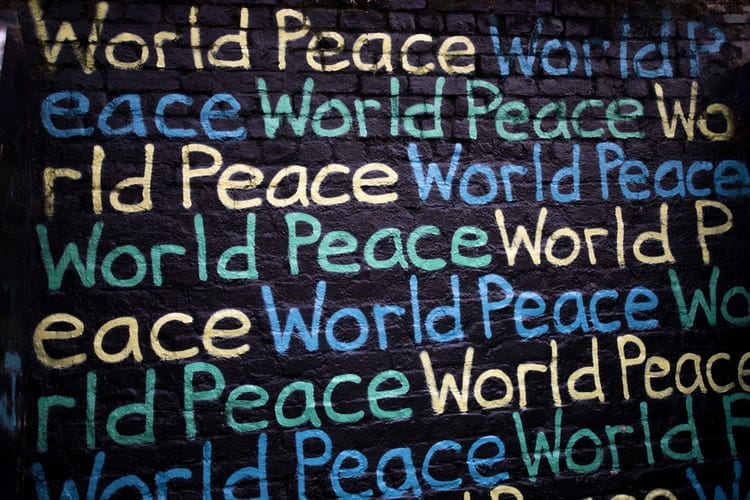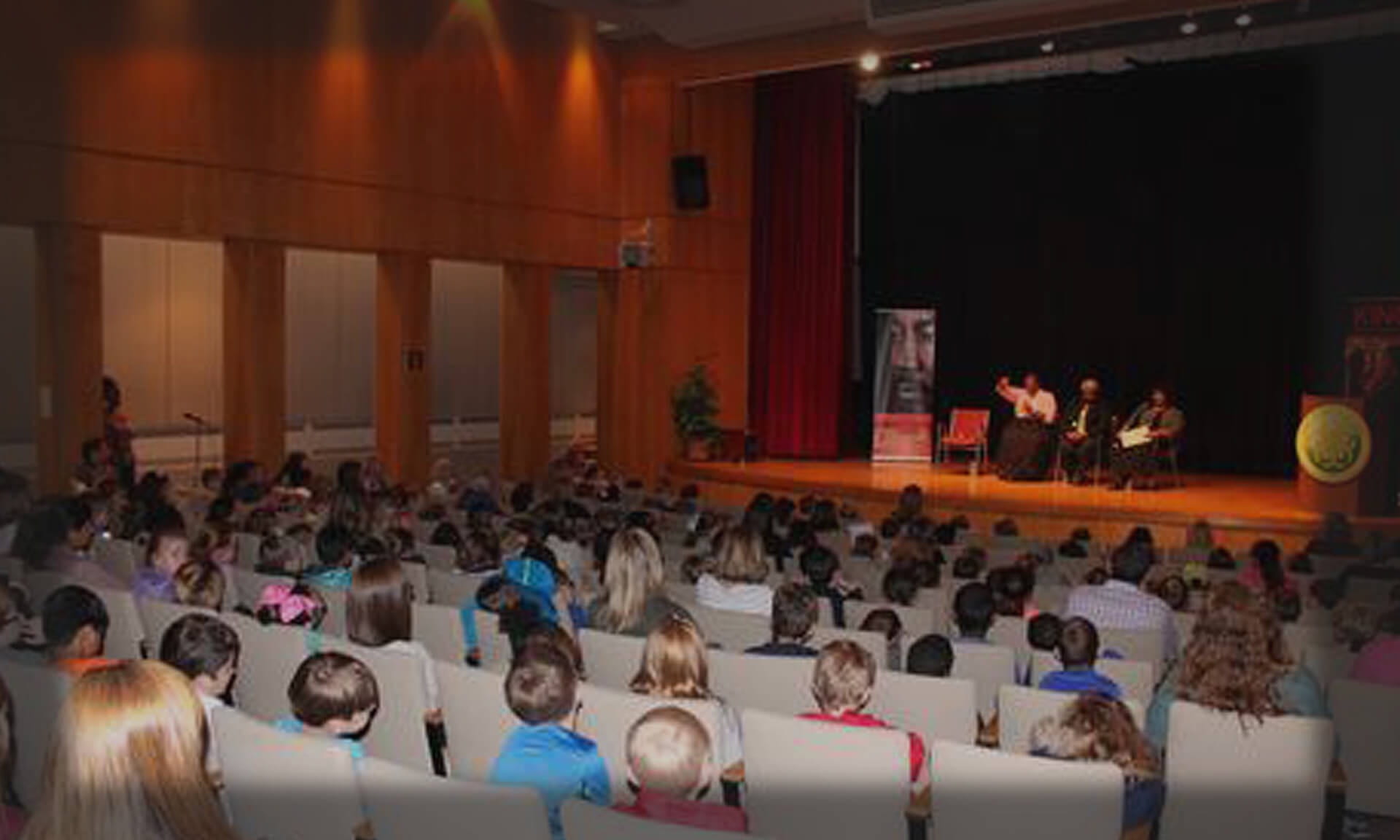Peace Education & Why It Matters
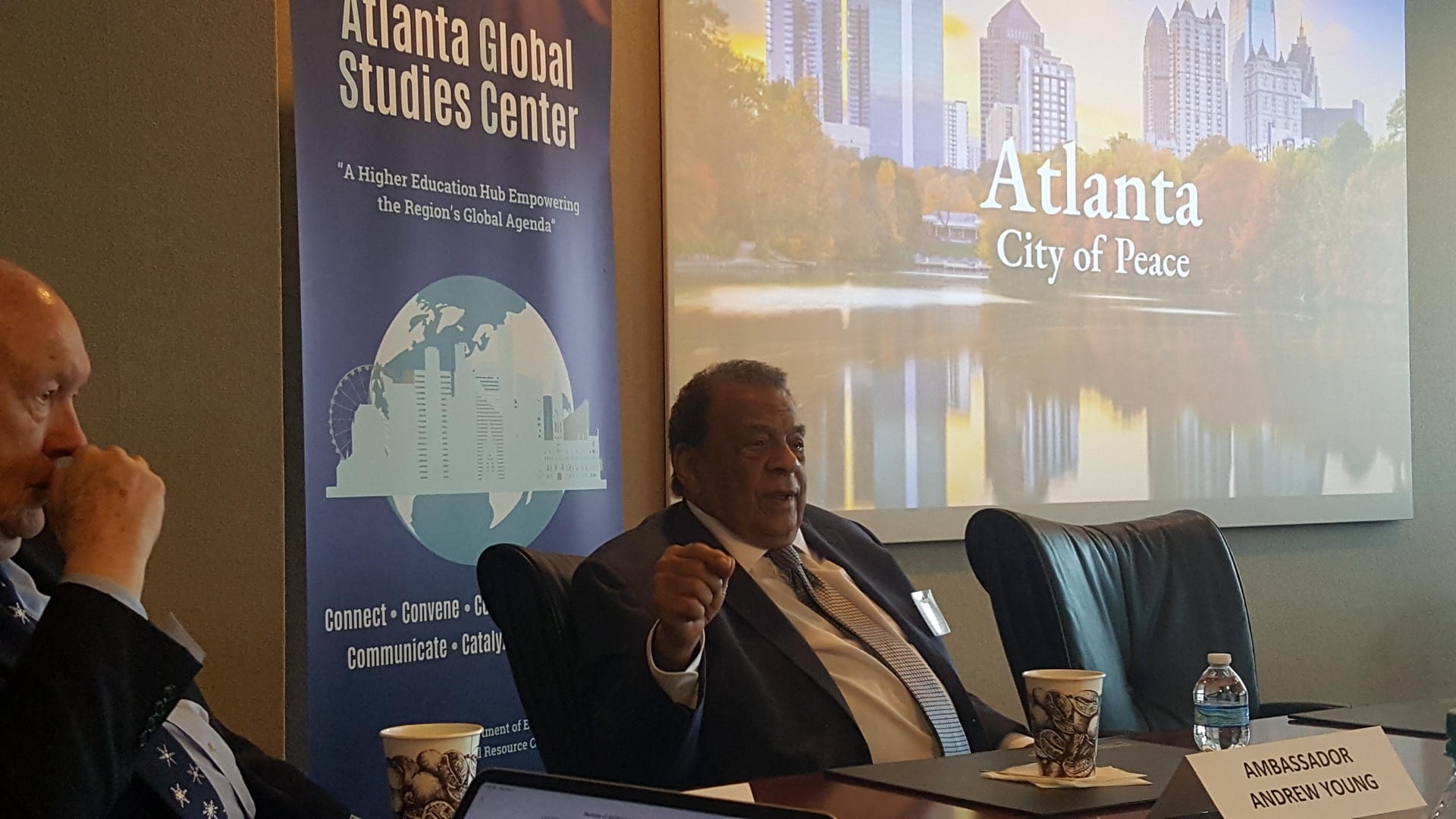
Andrew Young, Former UN Ambassador and Former Atlanta Mayor, delivering remarks at the Greater Atlanta Higher Education Leadership Meeting for the Peace Education Initiative, Feb 4, 2020, Georgia Tech (view source).
What is peace education?
Peace education is a planning strategy of eliminating the conflicts and violence caused by justice, inequality and human rights, violations, and implementing the ways and means of reducing the same through appropriate teaching and learning tactics by means of producing responsible global citizens to attain and spread peace in the world. Therefore peace education is a goal of education (view source).
Peace education is the process of teaching the values, knowledge, and skills of developing a peaceful society and social-ecological system.
Goals & Roles
Why is peace education important?
“Education is, quite simply, peace-building by another name. It is the most effective form of defense spending there is. Education is an investment which yields a higher profit than any other. For it yields promise for those who have known only poverty; progress for those who have known only privation; peace for those who have known only pain.”
-Kofi Annan, the co-recipients of the 2001 Nobel Peace Prize (view source).
Peace education means a lot in our society, it’s not only about delivering the concepts of peace and promoting peace for a better society, but also passing the value of peace to our next generation. Peace education also helps us to find the leaders of tomorrow, the group of people that will lead our people and bring changes to our future society. Peace education is for a better society, and a better future.
The collaborative initiative, Atlanta Peace Education Initiative from Atlanta Global Study Center(AGSC) at Georgia Tech and Georgia State University, is one of the Peace Education organizations in the city of Atlanta. AGSC has been conducting an analysis of “Peace Assets” across Atlanta universities and non profit organizations.
Higher education peace initiative, as an essential element of formation of Atlanta Peace Initiative, also provides study programs that come across different peace assets such as culture, gender, environment, health, etc. Peace education where we teach younger generations and for a greater society.
Peace education initiatives in Atlanta
Atlanta, a southern capital and the center of several historical milestones, has several institutions with emphasis on justice and civil rights. Within these institutions, are training programs focused on peace education of one form or another.
One such program is The Kings Center’s Nonviolence365® virtual training. As a nonprofit that primarily exhibits Martin Luther King Jr. related artifacts (with additional rooms on Rosa Parks and Ghandi), the King Center pays homage to one of Atlanta’s most revolutionary natives. Akin to the center’s namesake, the Nonviolence365® is “training individuals to influence equitable change in our national and global infrastructure.” With a portion of the program specially aimed at students of all ages, the training educates participants on the decisions, experiences, and development of Martin Luther King Jr. and Coretta Scott King.
Another peace education institution is the National Center for Civil and Human Rights. As a museum dedicated to documenting and exhibiting civil rights efforts in the United States, there are naturally several initiatives involved in peace education and justice. With initiatives such as the Campaign for Equal Dignity; Diversity, Equity and Inclusion; Law Enforcement Training Program; and Interfaith Response to White Supremacy, the NCCHR is constantly reevaluating and accommodating civil rights education necessary for the current political climate.
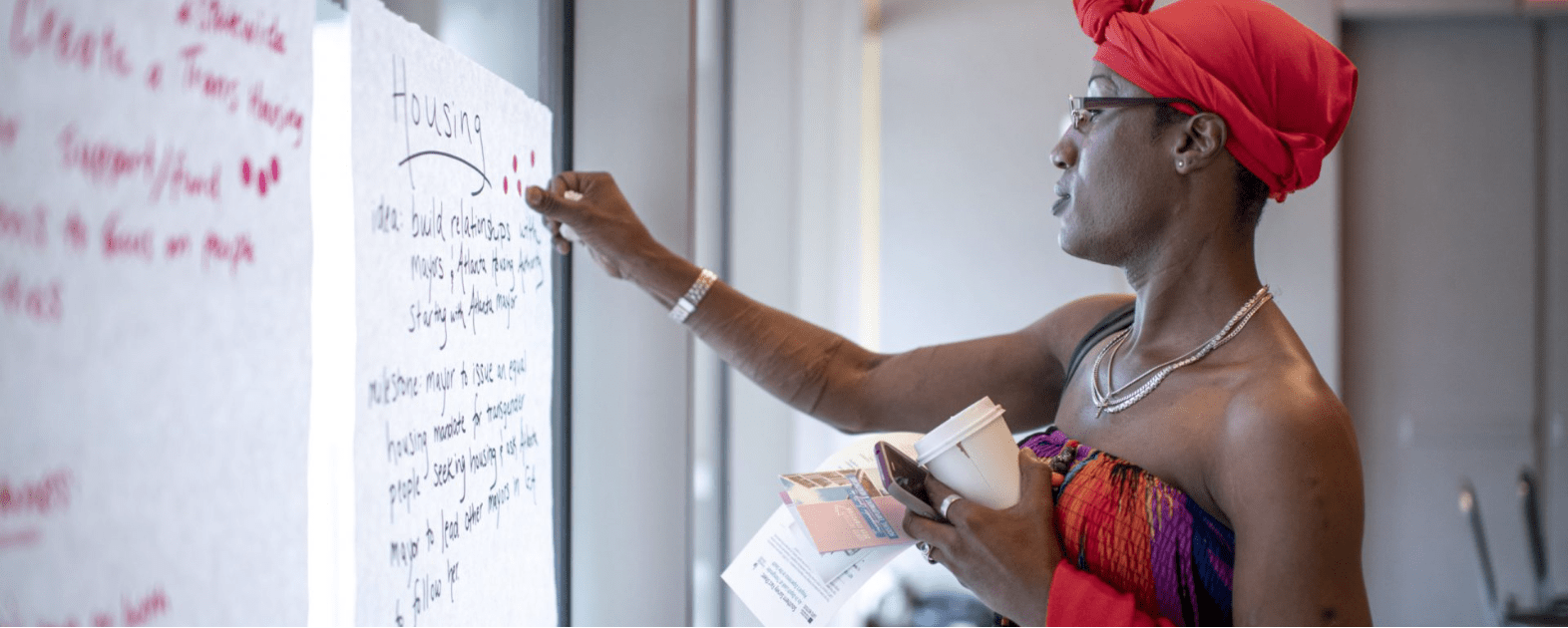
Image Source: https://www.civilandhumanrights.org/dei-experiences/
The Atlanta Peace Initiative and Peace Education
The Atlanta Peace Initiative, a collaborative effort of Atlanta’s business and political leaders to develop Atlanta into the epicenter of peace, is in partnership with the Atlanta Global Studies Center coording the Atlanta Peace Education project. While many institutions have peace education related initiatives, the Atlanta Peace Education project is an explicit effort to document peace activity and create sustainable peace education programs. With its high relevance to Atlanta’s community, the Atlanta Peace Initiative is also collaborating with 8 local public and private universities in the Atlanta Metro region: Georgia Tech, Georgia State University, Emory University, Morehouse College, Morehouse School of Medicine, Agnes Scott College, Interdenominational Theological Center, Kennesaw State University, with verbal interest from University of Georgia and Oglethorpe University as well.
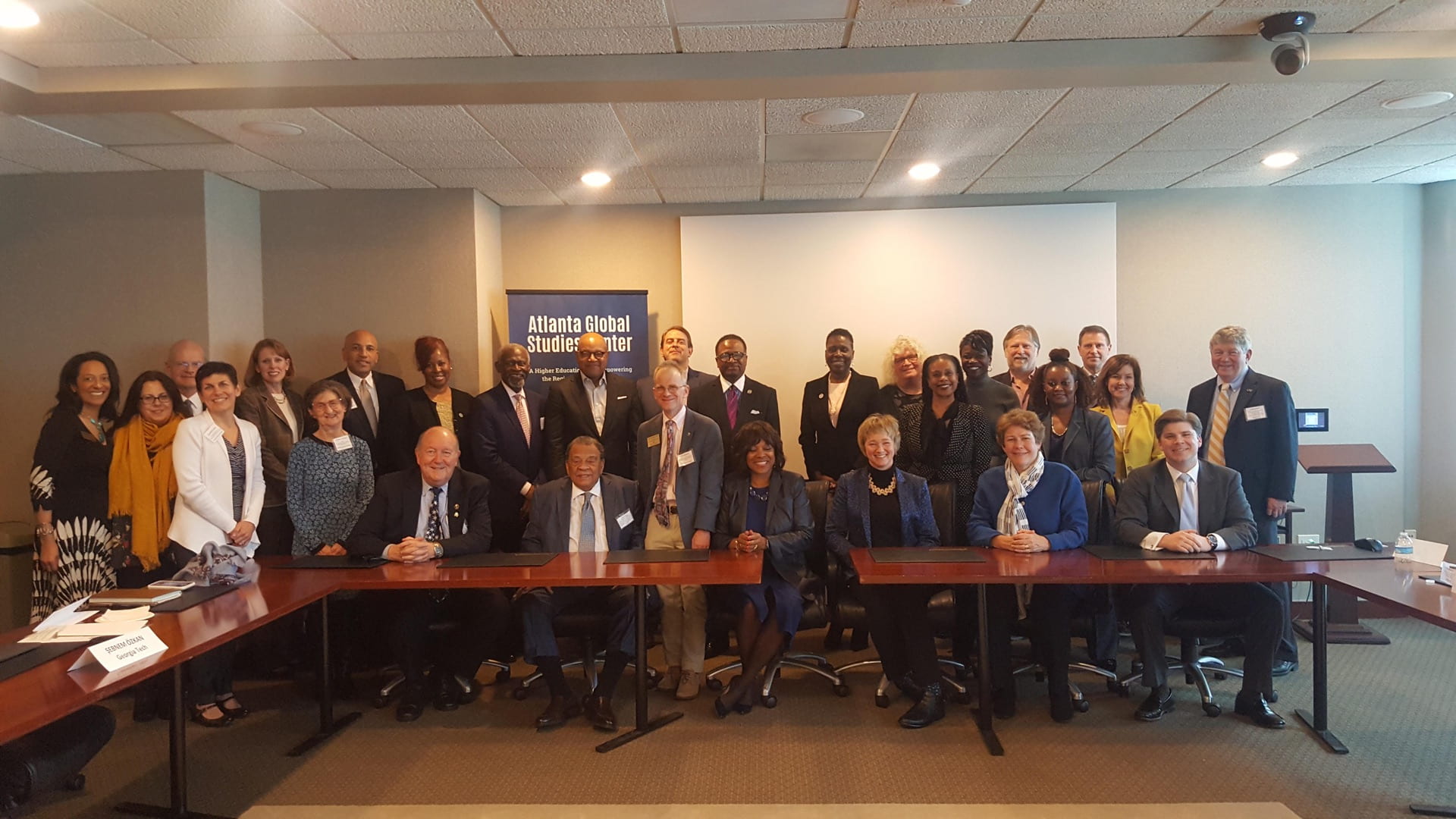
Peace Education in Greater Atlanta Higher Education Leadership Meeting, Feb 4, 2020, Georgia Tech (image source)
Through research, webinars, events and partnerships, the Atlanta Peace Initiative hopes to “[engage] in innovation for peace by working together [towards] higher education and with industry partners, nonprofits and international organizations such as Nobel Peace Prize.”
One such project with high collaboration with the participating universities is the Peace Education Asset Mapping project. As research on peace education, the Peace Education Asset Mapping project documents any initiative (of any size) that contributes towards peace education. In analyzing the relationships both within and between universities, the definition of peace and peace assets was expanded revealing a vast peace education network. With traditional definitions of peace revolving around the absence of war/conflict, the Peace Education Asset Mapping research developed a more proactive, expanded version of peace focusing on gender, human rights, diversity, equity and sustainable development goals (SDG). In addition to this expanded criteria of what entitles a peace asset, is an analysis considering the relationships, collaborations and connections between different disciplines and locations, effectively a “new era of peace.”
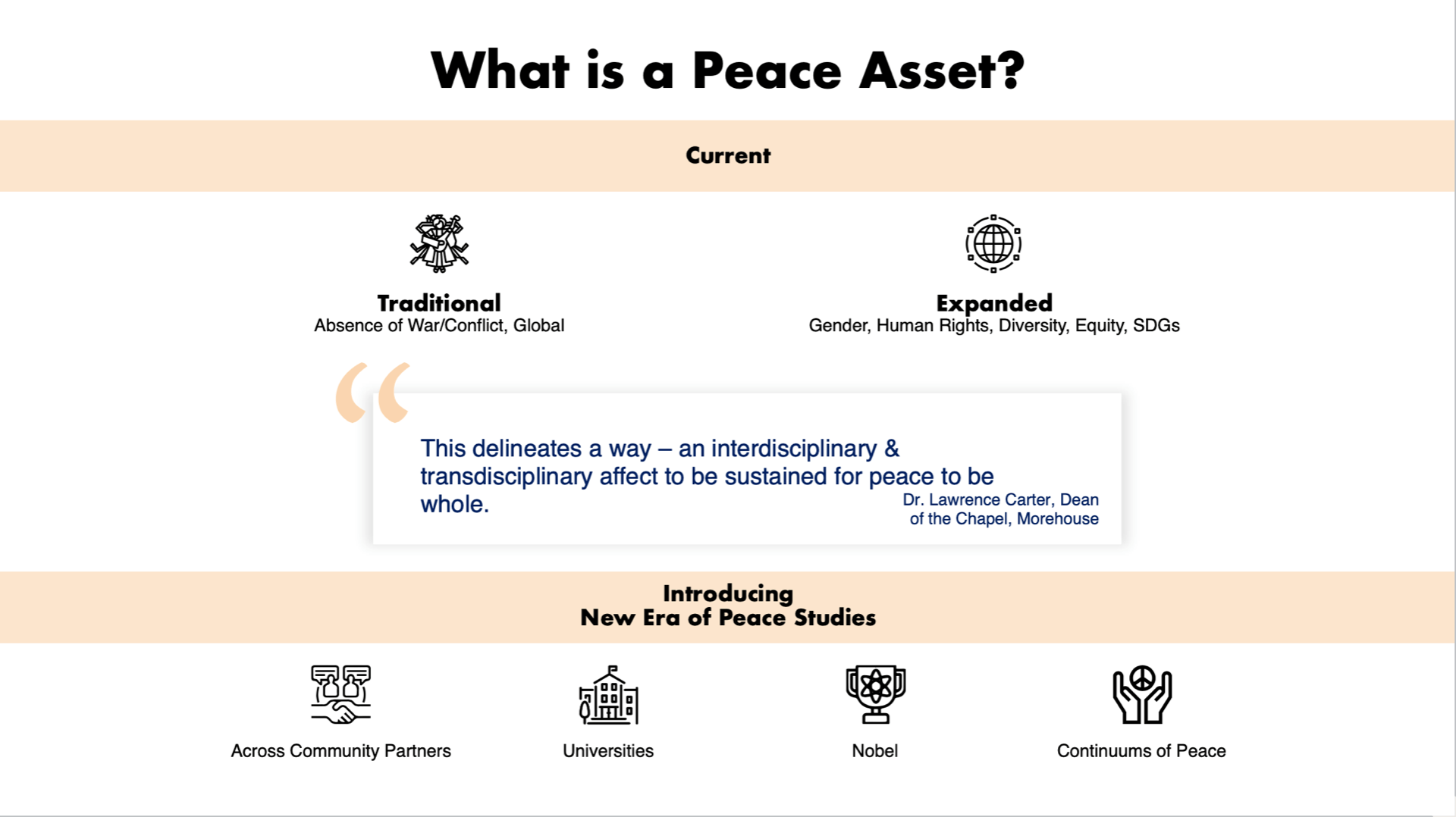
With the traditional definition criteria providing 6 peace assets and the expanded definition providing another 61 peace assets, the New Era criteria revealed an astonishing 1165 peace assets. Highly interdisciplinary, multidimensional and intersectional, peace asset mapping has provided an essential reference to future peace education and research initiatives.
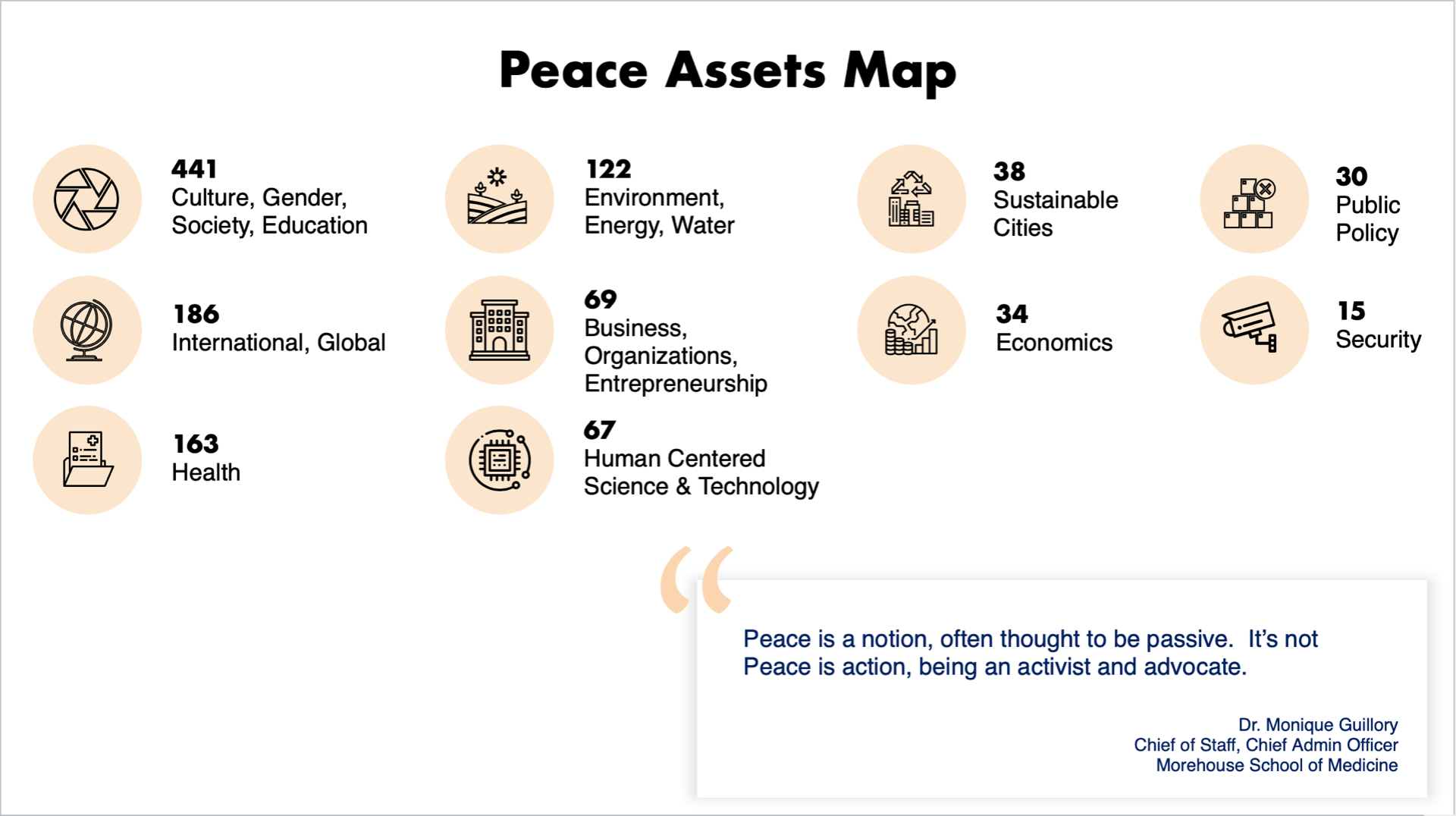
Across community partners, universities, nobel, continuums of peace 1165 peace assets were found
Through Peace Asset Mapping, a robust peace ecosystem was found throughout Atlanta’s higher education institutions. Many universities exhibit passion and capacity to “teach and [create] experiences that connect the ideals of peace into tangible concepts, tools and skills.” However, as the asset mapping exhibited, the greatest quantity of peace assets come from the relationships between sometimes seemingly unrelated fields and levels. It’s vital that we continue with peace education research and initiatives to further harness interdisciplinary understanding and communication towards a peace ecosystem.
Related Sources
Student podcast reflecting on the webinar and discussing the current and future landscape of peace education to be uploaded soon!
